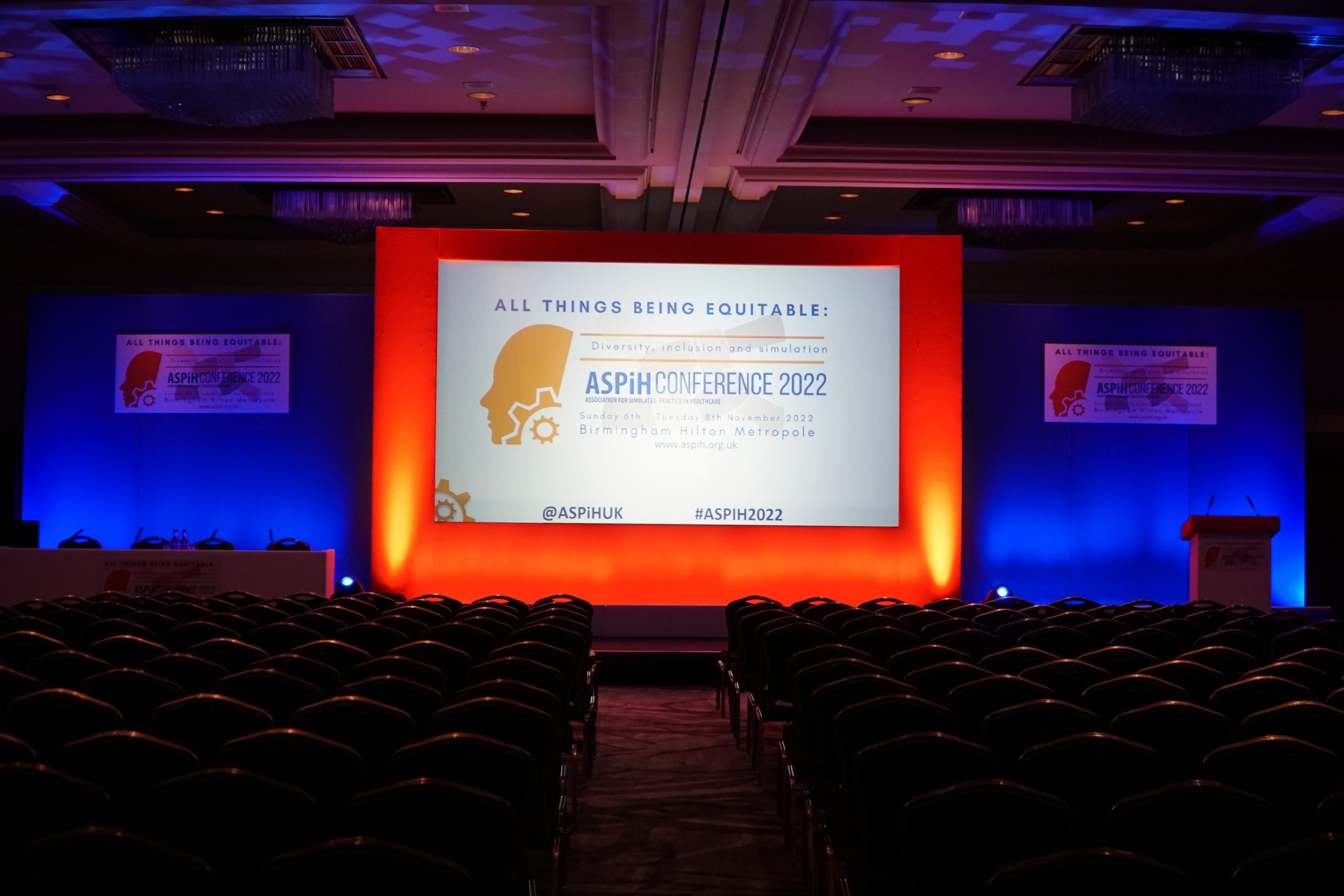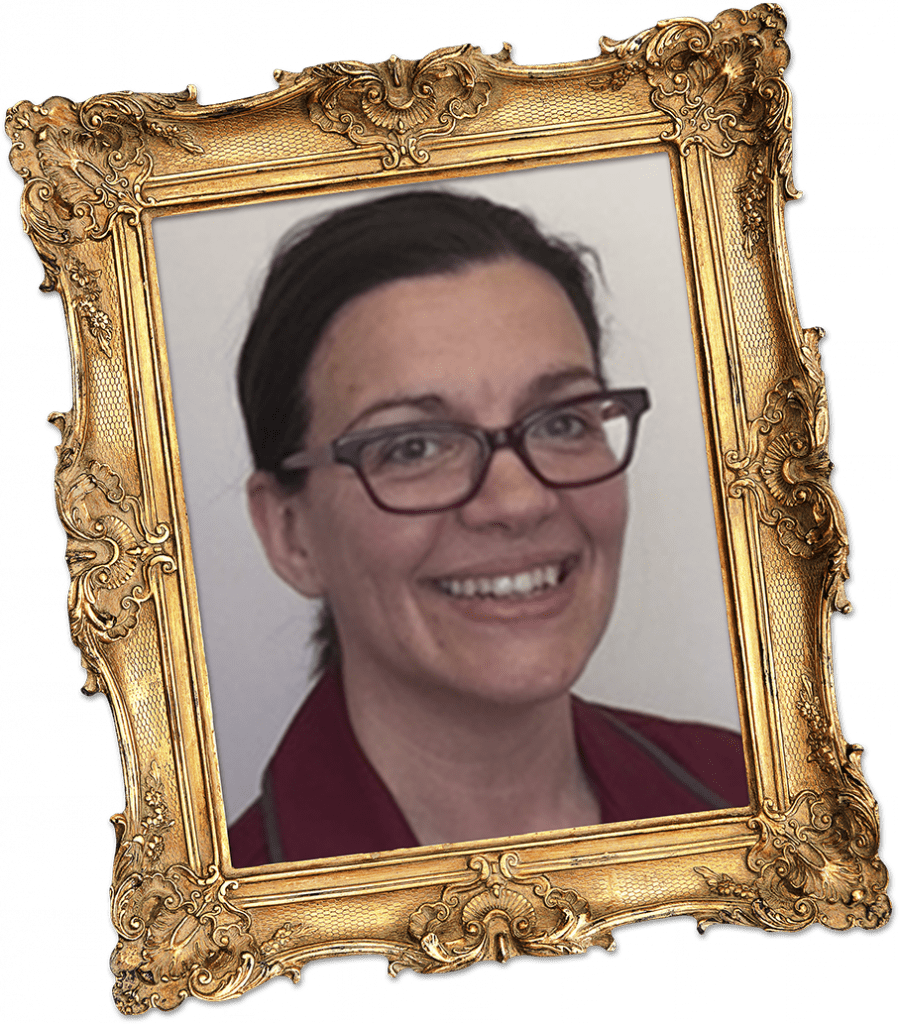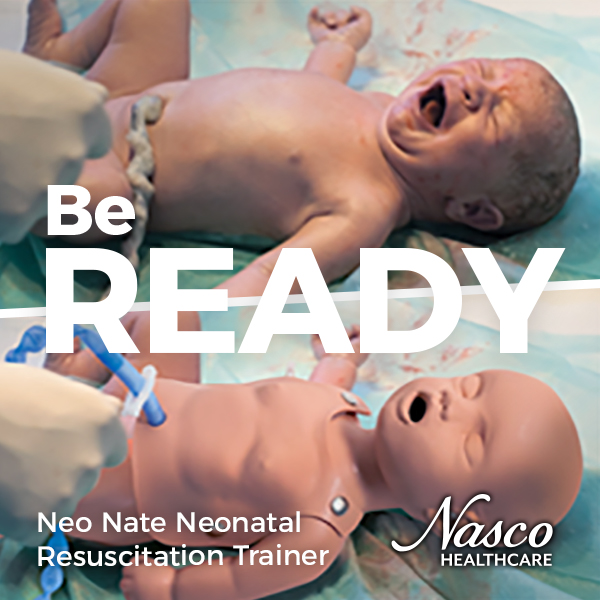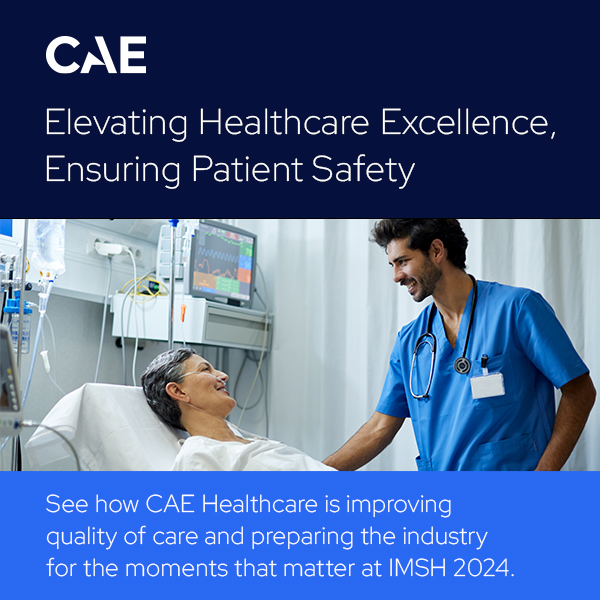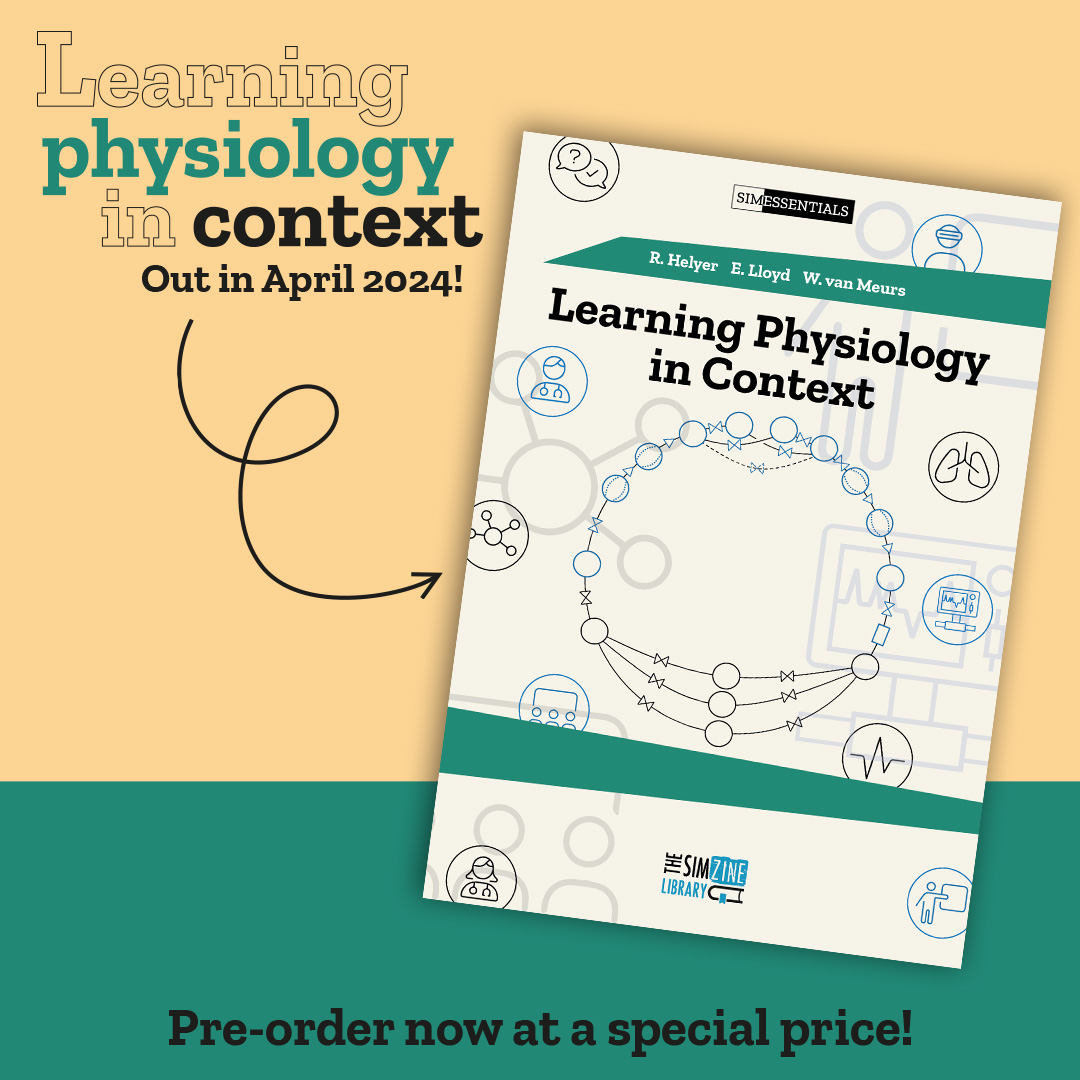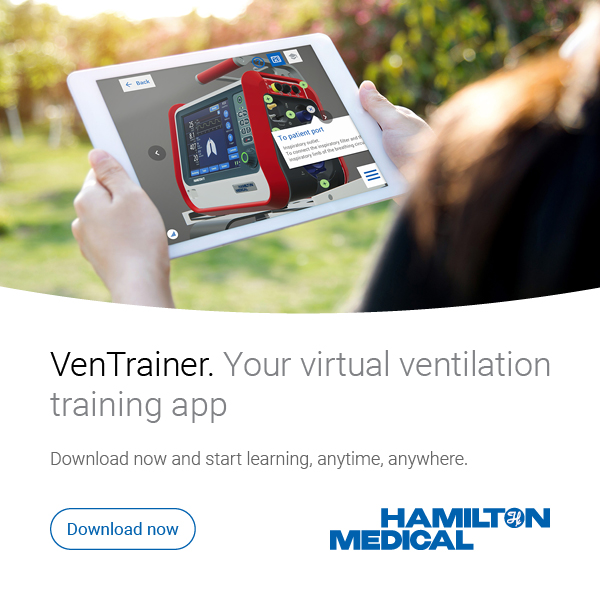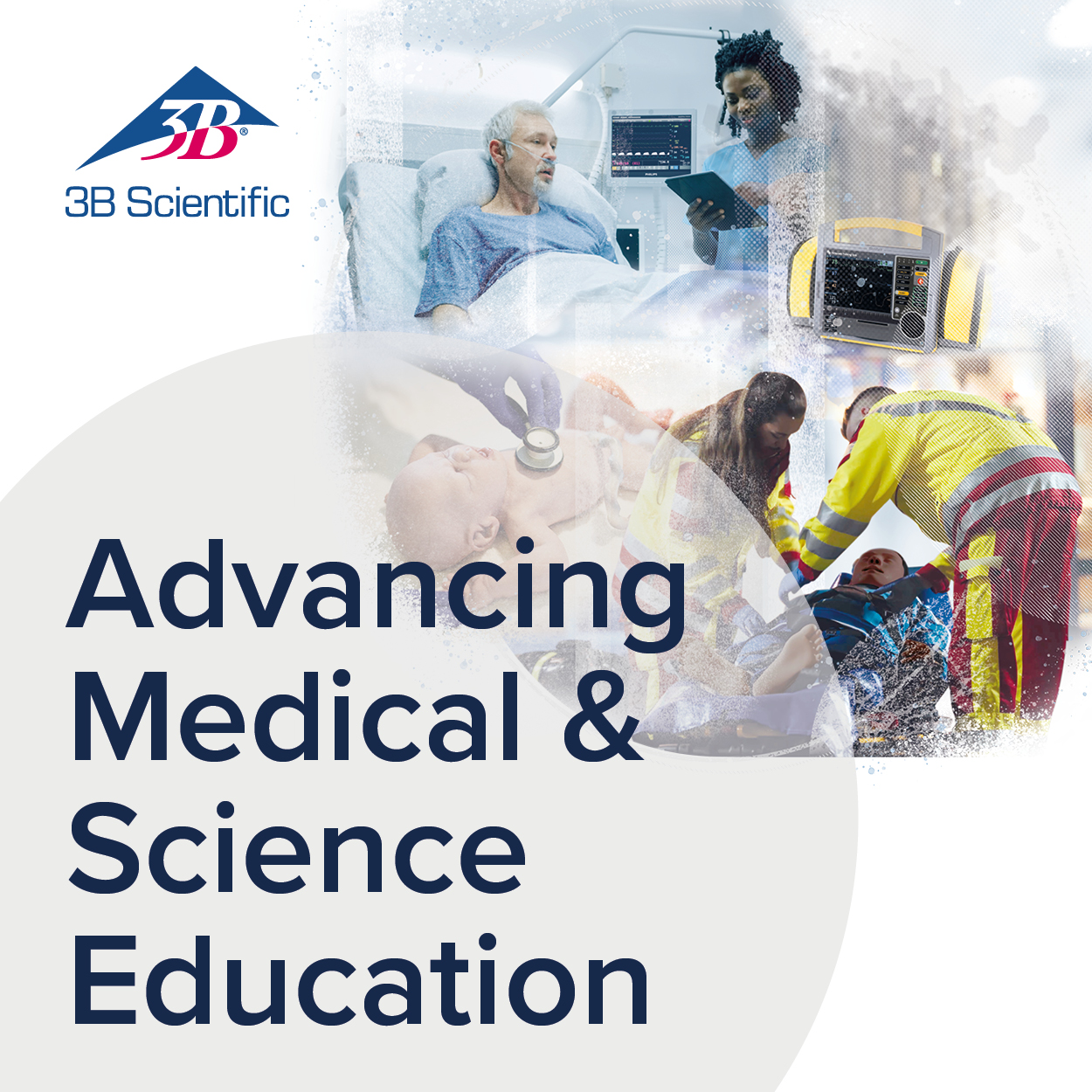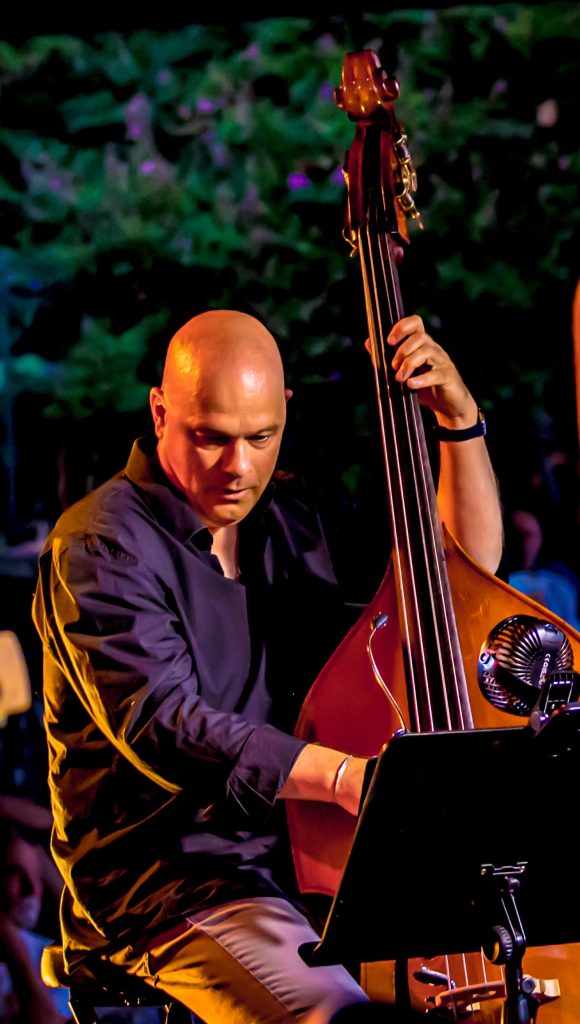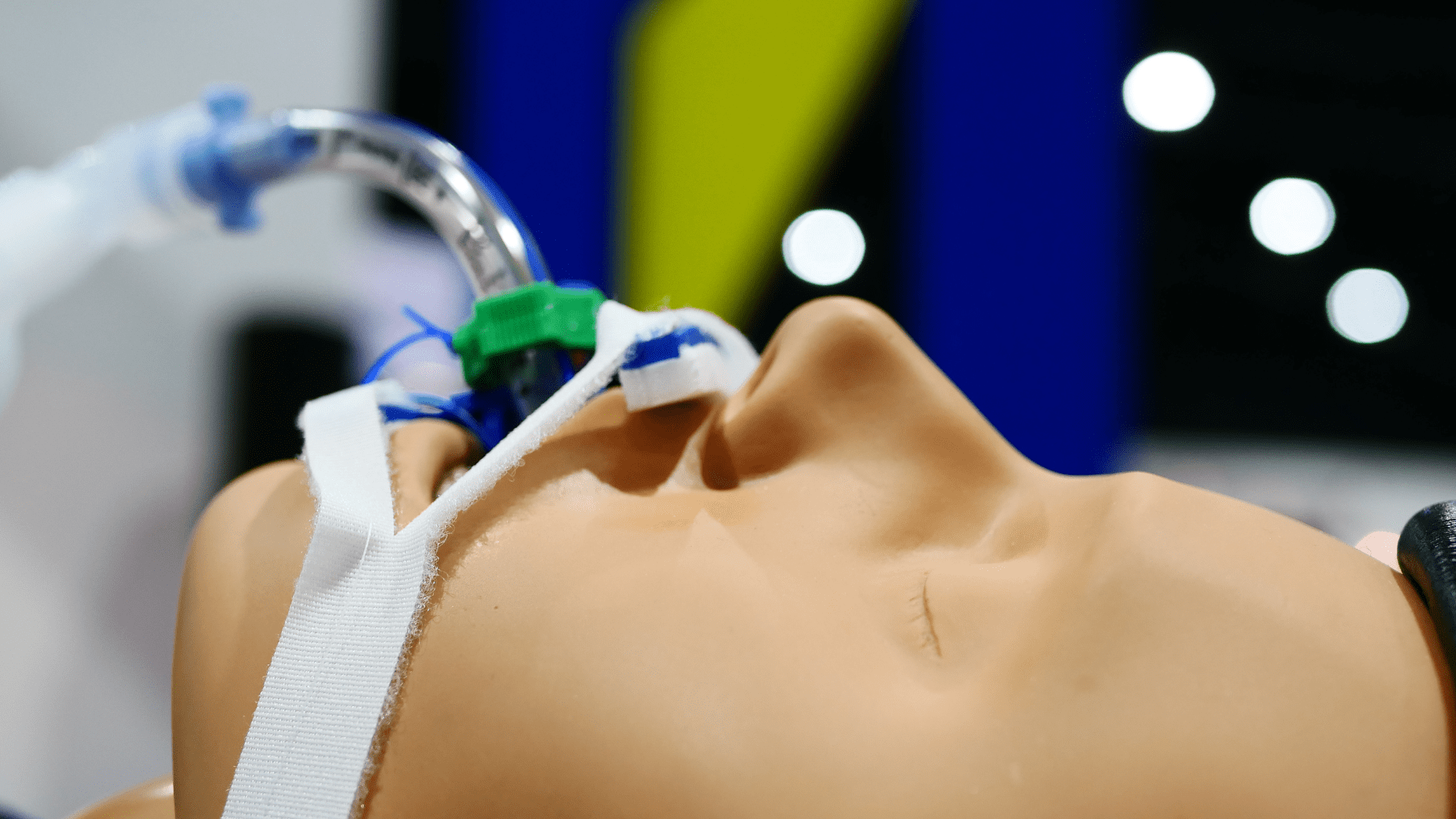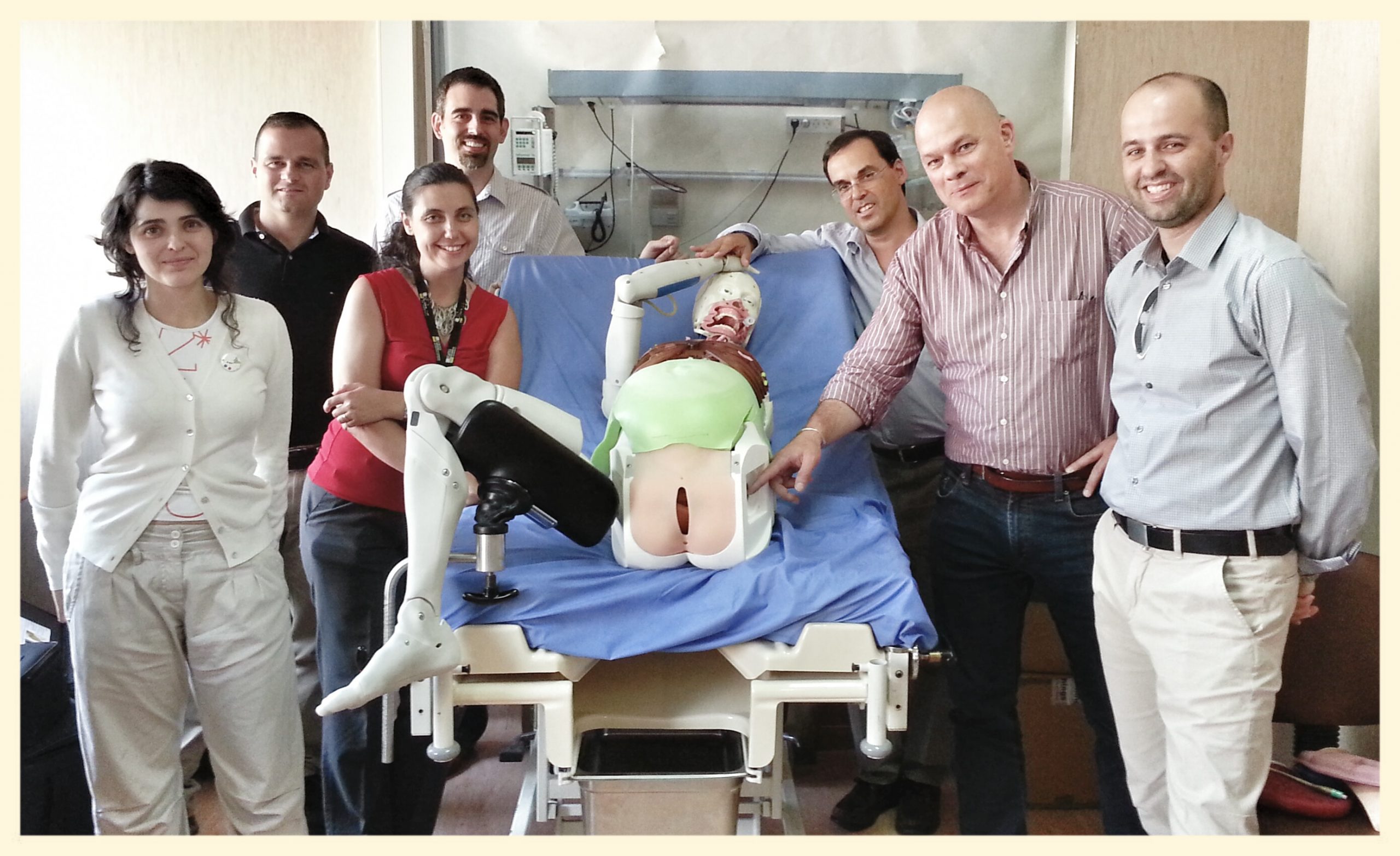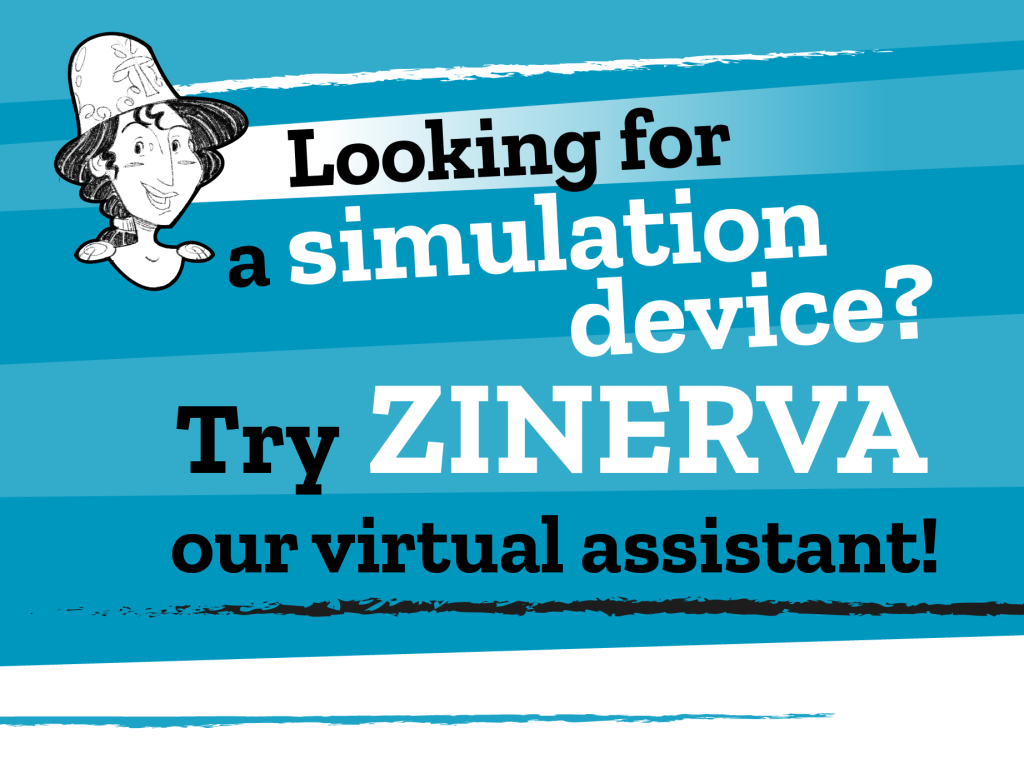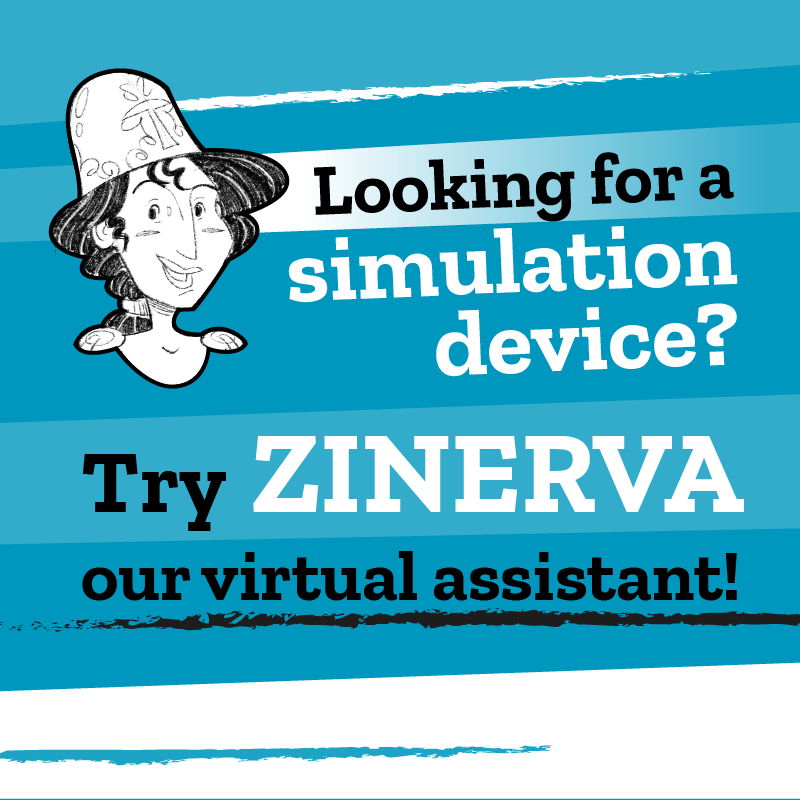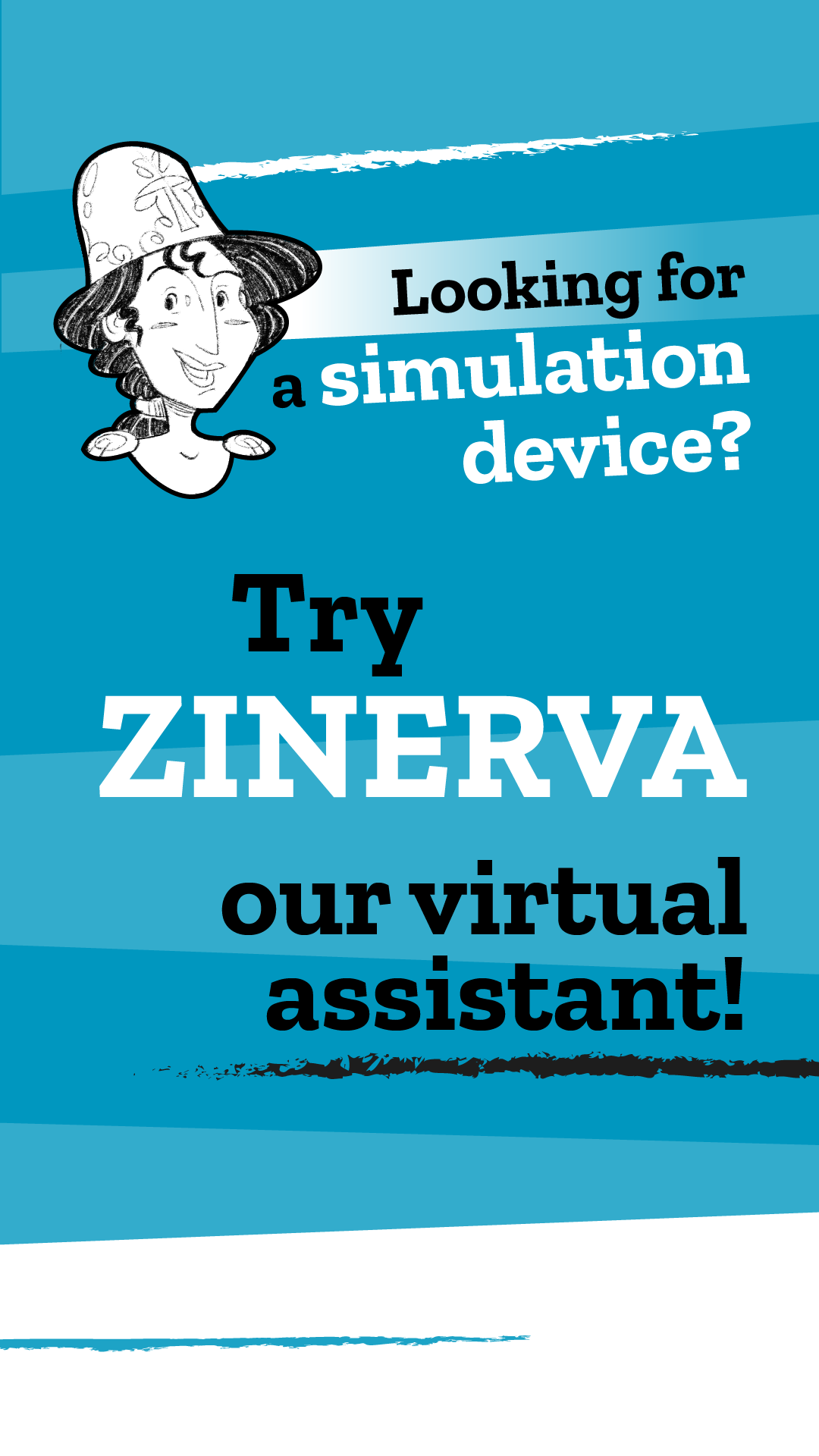In this issue we meet Colette Laws-Chapman, the first nurse to become president of ASPiH who is set to accompany the association in the celebration of its upcoming 15th anniversary in 2024. She shares with us her expectations and plans for the society’s growth
In this issue we meet Colette, president of the Association for Simulated Practice in Healthcare (ASPiH). Registered nurse with an intensive care specialty background, passionate about education, training, and quality improvement, she calls herself a simulation specialist; although it is not a real job title, it describes well what she does now after a 34-year career. First nurse to become president of ASPiH, she is set to accompany the association in the celebration of its upcoming 15th anniversary in 2024. She shares with us her expectations and plans for the society’s growth.
Hi Colette, thanks for agreeing to share some time and thoughts with us. Would you like to briefly share your bio??
I’ve been a registered nurse for over 30 years with an intensive care specialty background, I have always had a passion for education, training, and quality improvement. My nursing career evolved from practice development and teaching sister roles in intensive care through to corporate nursing positions in two of London’s teaching hospitals, supporting education and training initiatives for post graduate colleagues and undergraduate nurses whilst on placement. In 2009 I co-developed an interprofessional Foundation in Patient Safety programme for junior doctors and newly qualified nurses and midwives. I became fully employed within a Simulation service for acute & community care in 2013 and to develop my facilitation skills I completed my simulation instructor course at Center for Medical Simulation in 2016 and my Master Debriefing course with The Debriefing Academy in 2021. In the last decade I have been involved in designing and delivering educational and transformative simulation-based activities supporting patient safety in the workplace. I co-chaired the South London Simulation Network 2014-16 and led the faculty development programme for my organisation for the past five years. In that time, I have been involved at a national level working on faculty development projects and on the ASPiH Executive committee.
A brief bio but a lot of achievements, congratulations! In your Linkedin profile you wrote “Simulation specialist”. So, how did you become interested in simulation?
I wanted to find ways to help healthcare practitioners develop their team skills and create a space where they could consider how they work more collaboratively. Simulation, with structured learner-led debriefing, seemed the ideal way to do that. Joining the medical education team in 2013, I developed my facilitation and course design skills with the support of two amazing mentors Peter Jaye & Gabe Reedy. For one project we worked alongside Performing Medicine, a specialist group of artists, developing a model of compassionate human factors called the Circle of Care. Drawing on techniques from the arts we combined clinical and human factor skills with a focus on self and compassionate care, building this into our course designs.
I’ll be honest: I’m not sure that I should be using that title officially. 😉 But I was trying to describe myself because I don’t think my job title does that. I have significant experience of designing and implementing realistic simulations at the micro and macro level of organisations, using a wide range of simulation modalities. I’m an expert in the speciality of simulation within health and care services. And so, in that sense I am a Simulation Specialist.
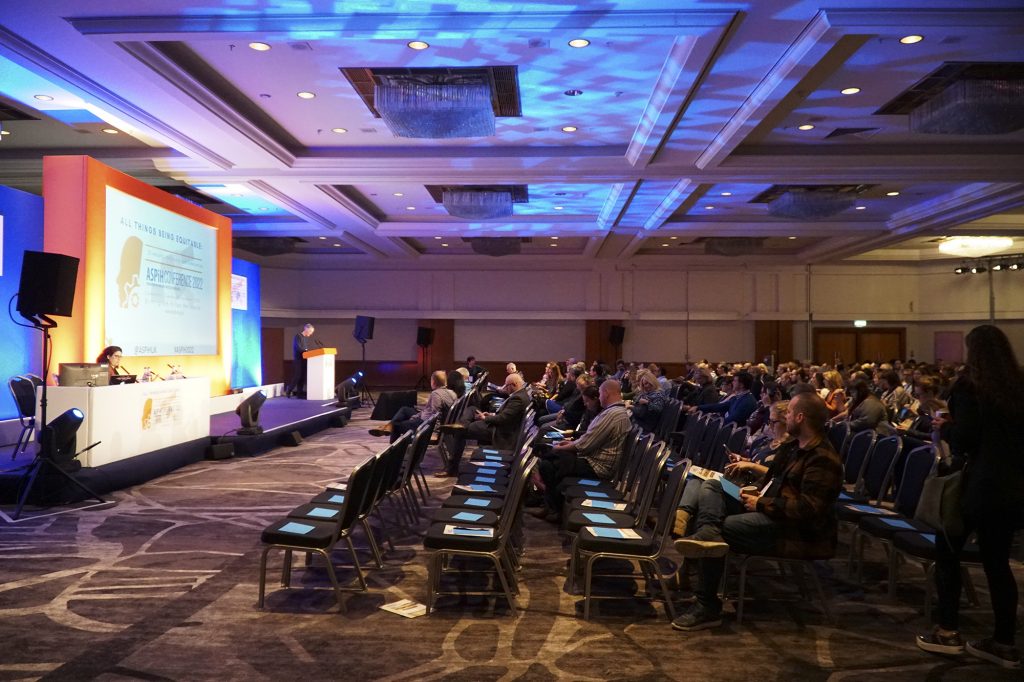
Currently, in what state is healthcare simulation in your country?
Simulation across the UK is in a positive transition phase, in my opinion. Commissioners and providers are collaborating and national programmes for faculty development are available. Hospital-based centres are building virtual simulation capacity. Alongside a more traditional manikin and simulated practitioner or patient-based learning events, our university colleagues are utilising digital simulation, and we are all building on our experiences during the pandemic and expanding formats, modalities, and roles. As our Nursing and Midwifery Council has endorsed the opportunity for 600 hours of nurses training to be simulated practice, there is a welcome drive to guide and influence high quality simulation-based practice. We envisage this will enhance both the learner experience and education opportunities that we predict will directly improve patient and public safety. We’re also seeing a significant expansion of the use of transformative and translational simulation to assist in system design across all health and care sectors and professions which, at ASPiH, we fully endorse.
Why did you want to become President of the Association for Simulated Practice in Healthcare?
When I joined the ASPiH executive committee (EC) in 2017, it wasn’t in my personal plan, but during the pandemic I had to take a wider leadership role for the organisation, and this inspired me as I was engaged with many colleagues from around the UK who supported the call to arms to provide equipment and training in very challenging circumstances. I saw the power and the possibilities of our network. I’m honoured to now be in this role. As the first nurse to be the president of ASPiH I’m excited too, my predecessors have all come from an anaesthetic background and along with other allied health and nursing colleagues they established ASPiH as an inter-professional organisation and EC. As we enter our 15th year anniversary in 2024 I want to help carry that vision into the next 15 years of ASPiH. I’m really proud of the way our ASPiH EC reflects the diversity of our members and the health and care services that they provide simulation facilities for.
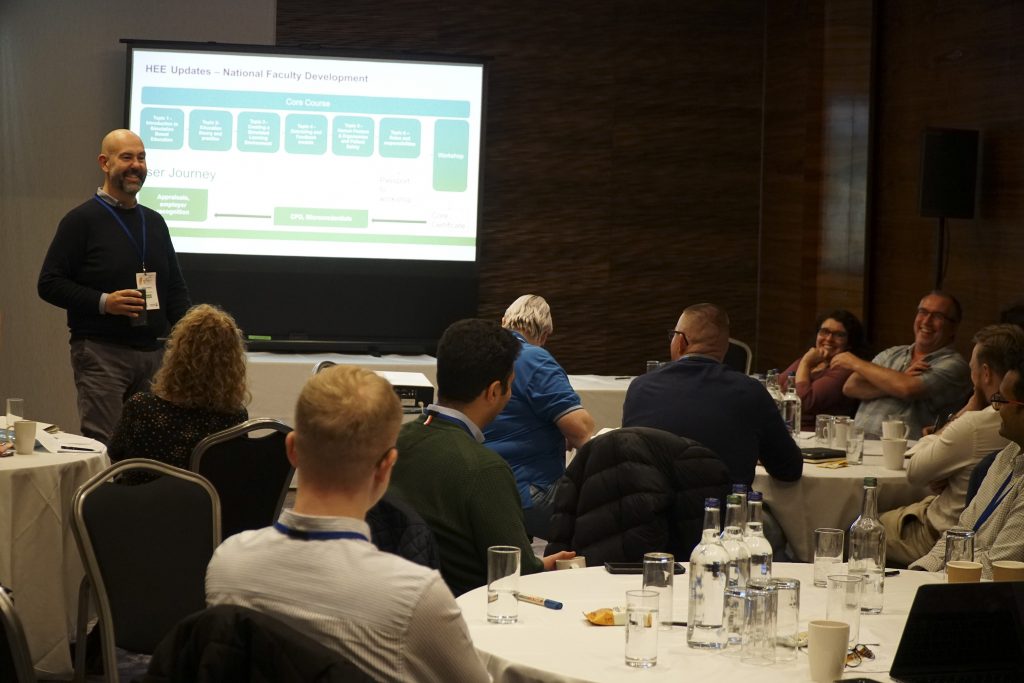
How do you think ASPiH can make a real contribution to members and attract new members?
We have been building a world class simulation association, through our networks, both across the UK and internationally which creates collaborative opportunities for our members.
Faculty and patient safety are paramount to ASPiH and our new simulation standards will facilitate members and colleagues to deliver high quality simulation activities, assisting them to develop their own CPD and how they protect their staff and practices both strategically and operationally for example.
Individuals and organisations can achieve Accreditation for a nominal cost, enabling them to provide evidence that they are operating at a high standard to their employees and commissioners.
We have discounts exclusively for members on a range of items, including conference registration rates with ASPiH and our affiliated associations and a new benefit is our research and publication mentoring scheme, which is being launched at conference 2024.
We will continue to use our conferences, online events, and resources to provide the opportunity for our communities of practice to flourish and help find ways to remove barriers and reduce silo working. A few practical things we have in the pipeline are:
- survey our members in the next 6 months as we develop our future membership benefit plans;
- consult regarding content through our online journal club, which, having recently merged with the Scottish Skills networks JC, is open to members and non-members;
- support our technician special interest group in developing an education and career pathway for their peers
support new special interest groups such as the newly formed Primary care and Debriefing groups to be effective communities of practice
What is the role of ASPiH in the network of relations between healthcare facilities, faculties and simulation units/centres?
We intentionally expanded the EC this year to 20 inter-professional colleagues from across the acute and primary healthcare hospitals and universities to support our vision of representing members, colleagues, and roles within simulation practice across our four nations and beyond the UK borders.
The ASPiH EC will use its independent position to implement the new ASPiH standards and support colleagues to provide high quality simulation and gain accreditation status where it’s sought. Through our active engagement with the four commissioning bodies across the UK on the ASPiH Standards consultation and our plans to work more closely on national and regional events from 2024, we are intentionally building our working relationships to help foster stronger links and alignment to the Standards.
We have organisational membership and reciprocal relationships with other simulation societies, and we hope to continue to use these networks to share best practice and expand our reach.
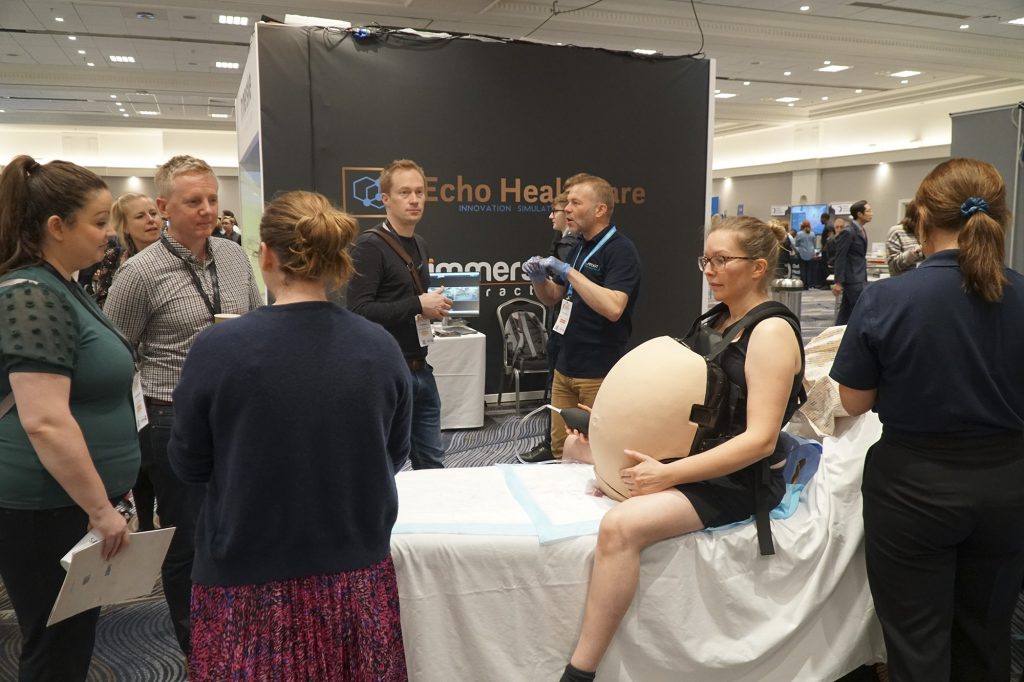
What role should ASPIH, as well as other scientific societies, play in the National Health System?
This is a difficult question right now as our national healthcare system (NHS) and the UK are going through turbulent times and unprecedented change.
ASPiH members either work within the healthcare service or they support it in some way because they provide translational simulation services, or undergraduate and postgraduate educational programmes as academic educational providers. They may also be working within networks and industry to provide simulation equipment, and education to simulation services within the National Health Service.
ASPiH is a membership organisation and therefore it is not formally regulated or commissioned to work for the National Health Service. That being said, all registered professionals within ASPiH membership are required to adhere to their professional regulatory bodies and Royal Colleges guidance for professional practice.
And this is where ASPiH does have a role: to participate in providing a platform for sharing expertise, in creating and sharing the evidence base. And in supporting others to review and to consider not only the standards of best practice from our own standards and accreditation systems, but to consider that of the wider organisations across the world who are experts within our specialty.

So, I see our role as a connection agent and a conduit for creating networks with our peer organisations such as ASPE, SESAM, SSH, INACSL and SIMeX
I’m excited and I’m a little concerned as our much-loved NHS continues to attempt high quality care provision in this economic crisis. Strikes are frequently impacting on the health and wellbeing of both our staff, faculty, and our patients. ASPiH’s role in this is to continue to provide guidance, evidence and support for simulation practitioners.
Where should ASPiH be in 2030?
The world has become a smaller place because of COVID and the expansion of our digital world and we must use this to our advantage.
In the six months that I’ve had the privilege of being the president I have connected or re-connected with all the aforementioned organisations and ASPiH has benefited from dialogue with experts working within these organisations.
I’d like to think ASPiH will be a UK household name and everyone in simulation in the health and care sectors are members. And that all professionals have equal opportunity to participate in simulated practice and research and that our courses have an element of simulated practice where it’s relevant.
ASPiH will be leading the way in safe, effective and dynamic simulation activities that benefit our patients and workforce, be they digital, using holograms, artificial intelligence or in a hybrid situation with face-to-face SP and manikin-based activities. I’m confident that ASPiH and its members will be producing the evidence base for innovative areas of simulation in 2030, much as we have done in the past but instead of a clinician, a Patient will be the president of ASPiH.
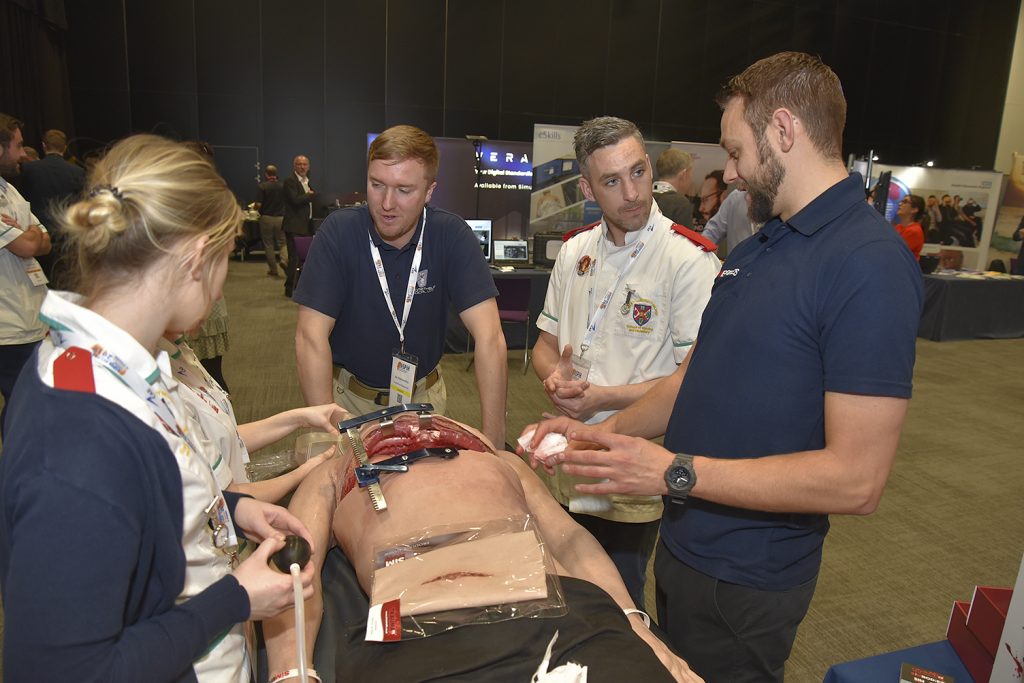
In what way can new start-up and older corporations contribute towards better simulation-based training and patient safety?
We firmly believe that our corporate colleagues are a significant part of the future of simulation and interactive learning. Part of ASPiH’s past journey and renewed priorities are to develop partnerships that support education, innovation and sustainability within the world of simulation and this year we have created a new post on the EC: a commercial partnerships and projects lead to help us form these partnerships. I would like to take the opportunity to thank Kevin Stirling for accepting this role. We would like to host some think tank opportunities to discuss the potential answers to this question…
For now I can think of two attributes that could help.
Often opportunities exist in the corporate world that can’t transcend to the front line, if commercial colleagues could find ways of sharing their knowledge, expertise and resource so that there is greater equity, and inclusivity throughout simulation services.
From a production perspective, I would like to see more work on the levels of realism in visual or physical features to help learners bridge the reality gap. This can help faculty reduce the use of simulation deceptions and we need our new and existing companies to consider affordable, adaptable simulators that receive software upgrades and repairs as part of the package.
But let’s set this think tank up and see what can be done together.
The annual ASPiH conference is approaching. All the ASPiH community is going to gather in Brighton next November. This year’s theme is sustainability. Why do you want to focus on it and, in short, what is a “sustainable simulation” for you?
Sustainable simulation is one that supports the workforce and patient safety, is cost effective, and provides good value and learning for faculty and organisations. And it avoids increasing the simulation carbon footprint or can reduce it in some way.
As well as sharing innovations, evidence, and friendship we want delegates to take away these questions back to their practice.
- Do we need to use new equipment? Or can we safely reuse it?
- Do we need to re-sterilise the equipment?
- Can we ‘iron’ out the packaging so it looks like new?
- Do we need to write, or buy resources or can we create or use sharing schemes?
- Can our courses and materials be open access to others?
- Can we create a freecycle or upcycle scheme?
- Can we share faculty expertise?
I’m sure there is more but I’m keeping it short
Is there anything that will make this next edition of the conference different from previous ones?
This year’s conference theme has been selected to help all of us focus on becoming more mindful of how we develop, use and succession plan within our healthcare simulation services.
A new ASPiH special interest group on focusing on sustainability will hold their inaugural meeting at this event. All our special interest groups are providing workshops or opportunities to discuss and create dialogue. And of course, this year is the launch of the 2023 ASPiH standards for simulation practice.
We are excited to be bringing together many stakeholders including regulators and royal colleges, members and contributors to our Standards symposium that we plan to hold. To help us all discuss the implementation and embedding of the standards.
I’m not the conference director this year, but my goodness, hasn’t the most amazing lady stepped into my shoes, thank you Carla Sa Couto for leading this year’s conference committee. With an unprecedented number of abstract submissions, conference 2023 has expertise, international networking, and twelve concurrent opportunities to support the ongoing growth of interest and excitement for simulation and interactive learning.
I’m really glad that not only SIMZINE will be with us, but so will 500+ practitioners and authors plus a full exhibition hall with representation from commissioners and industry participating in a new Sustainability forum. Let’s bring on November 2023 with a whizbang fizz pop of energy.
See you in Brighton on either the 6th, 7th or 8th of November.
Please don’t hesitate to contact any one of us on the 20 executive strong committee in the meantime.
Thank you very much, Colette, for taking the time to share your thoughts with our readers.
READ ALSO



